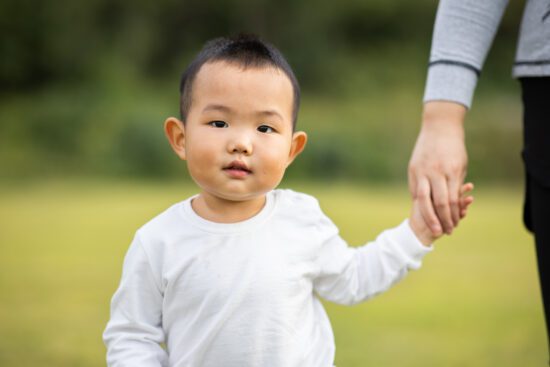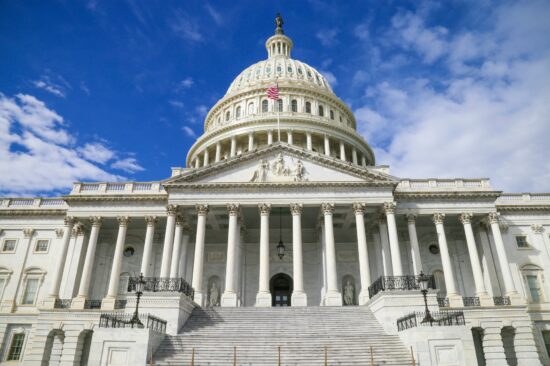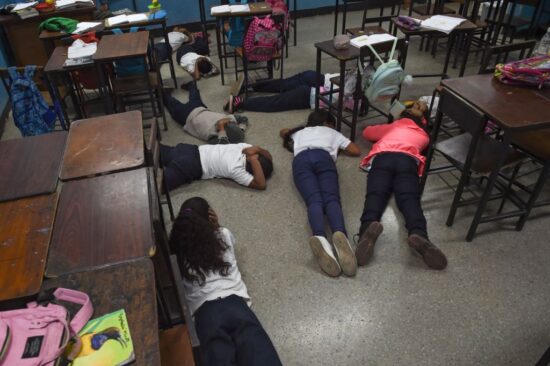Marriage and the family unit were established by God at the very beginning of creation as the first institutions. Genesis 1 and 2 shows us how God fashioned man and woman, brought them together as one flesh, and gave them the charge to be fruitful and multiply, or bear children. God works in many ways, but it’s through marriage and family that some of his greatest blessings abound to the world and bring about flourishing.
The Bible is clear that children are chief among those blessings. Psalm 127:3 says, “Behold, children are a heritage from the LORD, the fruit of the womb a reward.” Jesus, in a time when children were looked down upon, unashamedly welcomed them and pointed to them as an example of kingdom-followers (Matt. 19:14).
In Scripture, we also see that marriage as God has designed—“Therefore a man shall leave his father and mother and hold fast to his wife, and the two shall become one flesh” (Eph. 5:31)—gets the blessed distinction of being a picture of the union between Christ and his church (Eph. 5:32). And most importantly, through generations of imperfect families, from Abraham, to David, to Joseph and Mary, God brought the greatest blessing to every nation—the Savior of the world.
The Baptist Faith and Message affirms that “God has ordained the family as the foundational institution of human society.” When we see the erosion of marriage and family as God has designed, we see the stability of a society suffer. In their landmark book God, Marriage, and Family: Rebuilding the Biblical Foundation, Andreas J. Köstenberger and David W. Jones write, “It can be rightly said that marriage and the family are institutions under siege in our world today, and that with marriage and the family, our very civilization is in crisis” (15).
Areas of Marriage and Family Advocacy
Because the Bible is clear that marriage and family are creation ordinances and blessings from God, and because of the importance of these God-ordained institutions in preserving and prospering our society, the ERLC will continue to advocate for policies that maintain and protect these essential aspects of life together. God’s ways are for our good, whether our culture recognizes this to be true.
While marriage and family will not be perfect in the midst of a fallen world, it’s our responsibility as Christians to continue to champion God’s design and see it upheld for the good of our neighbor. Recently, many aspects of this particular area of advocacy have featured the protection and flourishing of children. Here are a few notable examples.
Support the Child Welfare Provider Inclusion Act
While a husband and wife often welcome children biologically, families can also grow by bringing children home through adoption—a glorious picture of the gospel (Acts 7:21; Eph. 1:5). We want to make sure that some of our most vulnerable children, who are waiting for homes, are cared for and given a loving, stable family.
Across the country, child welfare and child protection systems are overcrowded and under significant strain. Unfortunately, it is in this context that some states and cities are working to close those child welfare providers who seek to operate in a manner consistent with their religious convictions. This leads to fewer families available for foster care and adoption.
The Child Welfare Provider Inclusion Act would prohibit government discrimination against child welfare agencies on the basis of their beliefs, and ultimately protect children in the foster system and children waiting for adoption by ensuring that a wide range of child welfare providers are available to serve them.
Support Adoption and Foster Care Policies
The ERLC’s defense of vulnerable children is woven through a wide variety of priorities, from religious liberty concerns involved in adoption to the effect the opioid crisis has on foster care as parents struggle with addiction. In addition to the Child Welfare Provider Inclusion Act discussed above, we are exploring several policies aimed at promoting and supporting adoption and foster care in the United States.
Support the Adoptee Citizenship Act
Prior to the Child Citizenship Act of 2000, the administrative steps required of families adopting internationally were unnecessarily burdensome. The process included applying for and moving through a lengthy naturalization process for their children, in addition to the lengthy and costly adoption process.
The Child Citizenship Act of 2000 granted automatic citizenship to all foreign-born children brought to the United States who had at least one parent who was a U.S. citizen. Unfortunately, that act only applied to adoptees under the age of 18 when the bill was enacted, leaving an entire population of adopted children without full U.S. citizenship. The Adoptee Citizenship Act closes the loophole to provide immediate citizenship to these children already adopted by U.S. citizens yet left out of the previous bill.
Ensure Intercountry Adoption Remains a Viable Option
In 2018, 4,059 children were brought into U.S. families through intercountry adoption.1https://www.ccainstitute.org/resources/fact-sheets In 2019, only 2,971 children were welcomed into families through intercountry adoption. The reasons for this decline vary, from certain countries completely halting their intercountry programs to other countries placing more children in homes domestically. There’s also been a decline in stateside adoption agencies facilitating intercountry adoption, narrowing the options for prospective parents.
Many countries and cultures are becoming more open to domestic foster care and adoption. That is certainly good news, and ought to be encouraged. However, there are still millions of orphans worldwide who long to be raised in a family where they are known and loved instead of remaining a number in an impersonal institution.
Intercountry adoption must remain a viable option for welcoming those children into homes, and we must do all we can to facilitate those adoptions. In some countries, especially developing nations, the only chance a child might have at growing up in a safe, loving, permanent home is intercountry.
The ERLC is working with like-minded partners and the U.S. Department of State to ensure that intercountry adoption remains a viable option for families and vulnerable children around the world.
As cultural definitions of marriage and family continue to shift in our society, the ERLC will stand firm on the foundation of Scripture. We will advocate in the public square for God’s design to be recognized, protected, and embraced. While marriage and family also point to the beautiful spiritual and eternal realities of the family of God, these institutions bring very real benefits that contribute to the health and flourishing of our civilization. And part of being salt and light in our world means that the ERLC will seek the welfare of our neighbors and the glory of God as we uphold his good design in a confused age.











